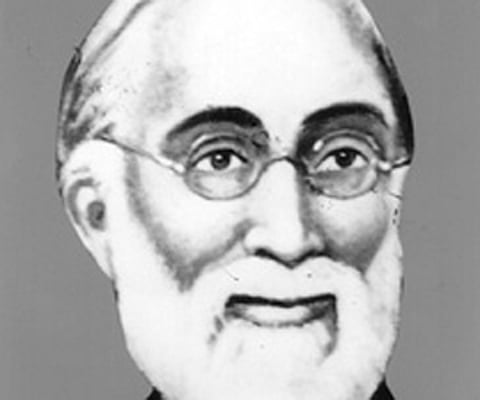Rev Ferdinand Kittel: The Kannada saint
HUBLI: German missionaries, with the knowledge of Bible and the life of Christ, entered India to propagate the religion against all odds.
Rev Ferdinand Kittel is one among such luminaries like Herman Mogling, ReJohn Layor, Y Muller, Godfrey, George Urth and Fredrick Zigler.
Mogling came to India in 1853 and undertook exhaustive studies learning the Kannada language, customs and local music. After serving as deputy to Herman Mogling, Kittel was sent to Dharwad. Noticing the dearth of literature on religion in the local language, while propagating ‘Suvarte’, Kittel wrote and released ‘Kathamale’ in 1862.
He also composed poems on the life and teachings of Christ and translated carols. He was a priest and worked in Mangalore, Madikeri and Dharwad. He is most famous for producing the first ever Kannada-English dictionary of about 70,000 words in 1894. Kittel wrote ‘Paramatmana Jnana’ in 1863 which included four chapters dealing with Hindu rituals, nature and God. His another work ‘Yesukristhana Shramacharitre’ written in 1865 deals with incidents prior to the crucifixion of the Christ.
In 1870, he brought out ‘Christ Sabhayatre’, a guide for protestant Christians’ religious practices. His other works include ‘A tract on Sacrifice (1872) and The Parable of Sower (1872). He published some textbooks along with ‘Karnataka Kavyamale’ (1874) and Kannada Panchatantra (1876).
He edited ‘Shabdamani Darpana’ of Keshiraja and named it ‘Jewel Mirror of Grammar’ in 1872 and also edited ‘Chandombudhi’ a prosody of Nagavarma in 1875 and called it ‘Kannada Chandassu’. Kittel wrote articles in first ever Kannada daily ‘Mangalore Samachara’ and edited Vichitra Vartamana Sangraha, India Mattu Anya Deshada Vartika news papers. His works on ‘Mangarasana Abhidan, Vastukosha, Haridasa Keertans, Puranas and Kodava rituals are noteworthy.
The production of the first ever Kannada-English dictionary brought him world fame, for which he invested 24 years, visiting every nook and corner of the habitats of then State, to collect words and published it in 1894, which won him a DLitt Degree, from a Tuebingen University in Germany. Kittel also penned ‘A Grammar of the Kannada Language’. Widely recognised in Karnataka, he is credited with shaping the Kannada language and the regional identity of its speakers. A statue on M G Road in Bangalore and another one in Dharwad commemorate him. Kittel who died in 1903, is referred to as a Kannada saint.

